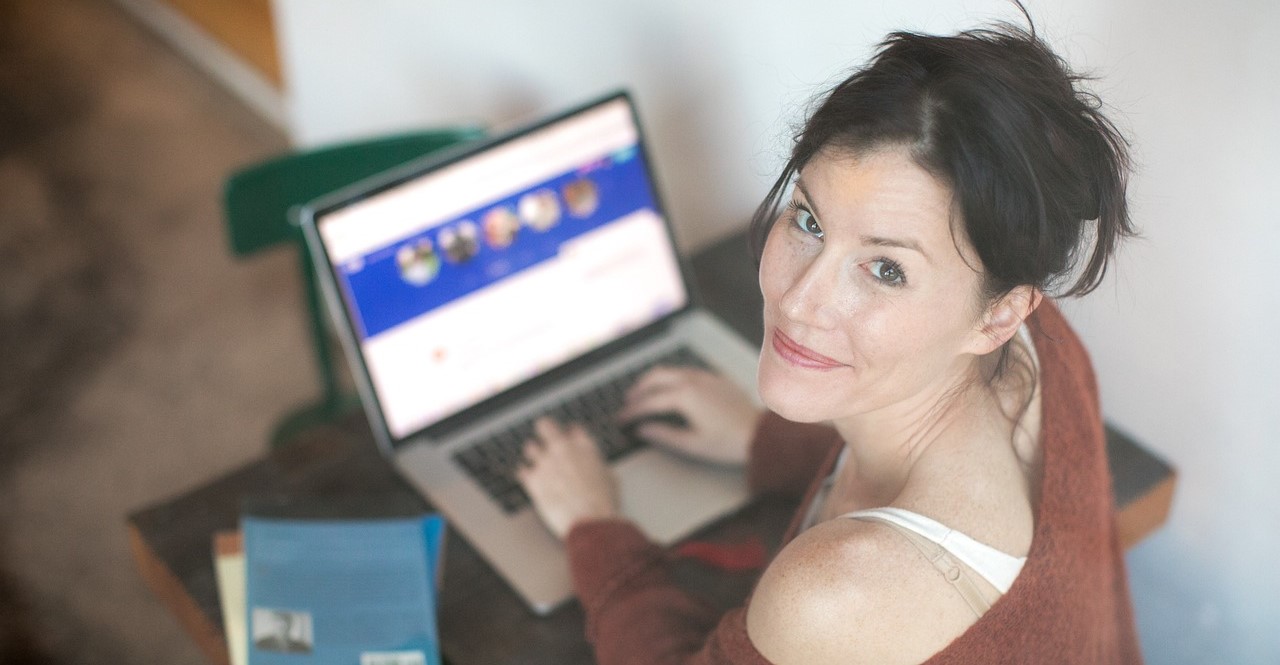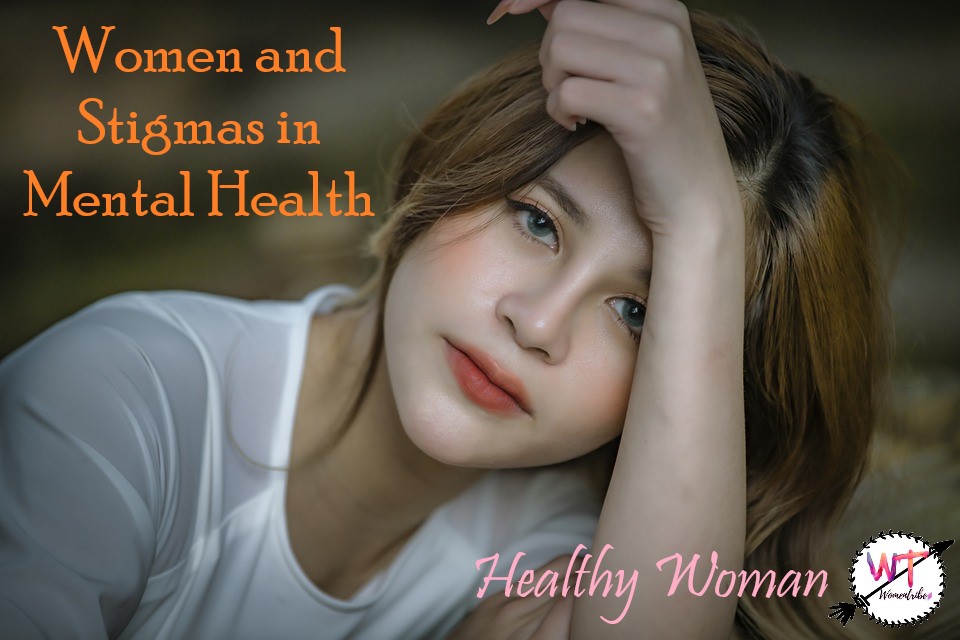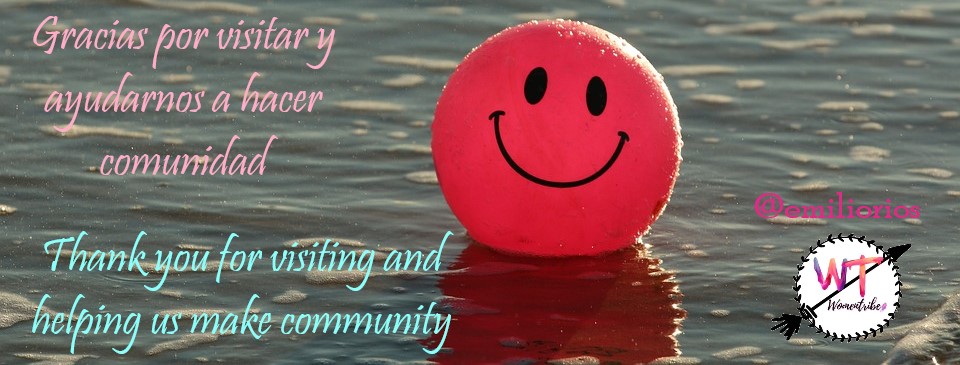

Estadísticamente, los trastornos mentales afectan en forma diferente al hombre y a la mujer; prioritariamente a la mujer.
Esos trastornos, como ansiedad, depresión, estrés postraumático, insomnio y los mismos trastornos alimentarios, son más frecuentes en las mujeres.
Es que, existen factores biológicos y genéticos involucrados que hacen que haya un impacto y prevalencia en este sexo; pero la capacidad de la mujer de realizar múltiples tareas, han hecho que, o se cronifiquen, o se oculten.
La lucha en pro de la Salud Mental comienza por desmontar estigmas que sufren las personas que padecen estos trastornos.


Estigma y discriminación
Desde el año pasado estamos poniendo mucho énfasis en la Salud Mental a nivel de todas nuestras comunidades en #Hive.
En @Womentribe hacemos un alto en la columna Mujer Saludable, para hablar de la grave problemática que implica la discriminación y el estigma asociado a las enfermedades mentales.
Porque la mujer tiene tendencia desde el punto de vista biológico a padecerlas en mayor proporción que el hombre; y porque, debido a sus fases de vida, atraviesa situaciones emocionales que el hombre no padece y que en ella son muy evidentes.
Del todo es conocido, las dificultades emocionales que puede presentar una mujer durante la fase de menstruación, en el embarazo, en la menopausia e, incluso, después de que da a luz a sus hijos.
Además, la depresión y la tristeza profunda suelen ser estadísticamente más elevadas en la mujer.
En nuestra lucha contra la depresión, así como contra todas las enfermedades mentales, la mujer tiene un papel predominante en esta gran batalla.

Un asunto delicado
No es solo la mujer la que padece del estigma cuando está afectada de un problema mental; a nivel social, las connotaciones peyorativas o inapropiadas son frecuentes cuando nos referimos a un paciente con problemas mentales.
Y aunque las capacidades cognitivas solo se ven alteradas en forma esporádica por estos trastornos, el paciente puede quedar marcado de por vida, como incapacitado a nivel social.
Por otro lado, tanto el cuerpo como la mente van cambiando en la medida en que nos hacemos viejos, lo que implica alta sensibilidad mental ante eventos que ocasionan ansiedad y depresión.
La lucha en pro de la salud física es tan importante como en pro de la salud mental en la medida en que vamos cumpliendo años, por lo que también, hay que considerar que todos, de una u otra manera, podemos padecer de esto en cualquier época de nuestra vida.
Según la Organización Mundial de la Salud, el 75 % de los problemas de salud mental comienzan antes de los 18 años en etapa escolar, y el 30% de los que la padecen sufren de discriminación educativa que se prolonga a nivel del trabajo.
Así, posteriormente, el 90 % de las personas trabajadoras con problemas de salud mental deben ocultarlo para que esto no ocasione un reto laboral.
Igualmente, el trato injusto que se recibe a nivel de los hogares ha sido catalogado hasta un 50.4 % en países como España, y un 53.1 % ha recibido trato despectivo de amigos y allegados.

¿Cómo enfrentamos el estigma?
Cuando se ve en forma negativa alguna característica distintiva de un ser humano o las condiciones de una enfermedad, hablamos de estigmatización, y lamentablemente esto depende de culturas y creencias.
Combatirlas implica enfrentar la situación en forma realista, por lo que, si tienes una enfermedad, debes ir con el médico y si hay una discriminación de tipo social, debes ir con un buen asesor legal.
En salud mental, enfrentar el estigma es buscar tratamiento, aceptar que se tiene el problema y buscar ayuda; reforzar la autoestima para que no te quite la fortaleza con la cual lucharás.
También, el aislamiento y la poca identificación que puedas tener con tu enfermedad jugarán en tu contra, por lo que debes buscar grupos de apoyo, buscar ayuda en las escuelas o en el trabajo en forma frontal, y realizar una campaña en tu entorno, donde se respete y se comprenda tu situación.
Existen problemáticas como la bipolaridad, que antes representaba una causa de estigmatización muy fuerte, pero que se ha ido aceptando poco a poco; por lo tanto, las luchas siempre dan buen resultado cuando se tiene persistencia, aceptación y conocimiento del problema.

Unidos en pro de la Salud Mental
Como creadores de contenido, debemos unirnos para dar a conocer estas situaciones que vivimos y que podemos vivir todos.
Ser conscientes de que existen países donde un alto porcentaje de las noticias que tratan sobre enfermedad mental son expuestas en tonos negativos, que la difusión de los casos de suicidio en un muy bajo porcentaje lleva la opinión del que lo intenta.
La recuperación de una persona que sufre de depresión, de tristeza y que ha optado por el suicidio, debe llevarse a cabo en primera persona, lo que significa que esta debe ser tomada en cuenta primariamente.
Quienes escribimos en esta red social artículos que concientizan y que ponen en marcha, hasta cierto punto, iniciativas que brinden experiencias y herramientas entre todos y para todos, debemos unirnos para dar a conocer esta realidad y para fomentar la unión y la capacidad de hacerle frente a estas problemáticas.
Por eso, te invito a que realices una publicación con base en experiencias propias o ajenas, sobre lo que es el estigma de la enfermedad mental en tu entorno o con personas que tú conozcas.


Women, Stigmata in Mental Health and We, the Content Creators -In Healthy Woman-


Statistically, mental disorders affect men and women differently; women first and foremost.
These disorders, such as anxiety, depression, post-traumatic stress, insomnia and the same eating disorders, are more common in women.
It is that, there are biological and genetic factors involved that make that there is an impact and prevalence in this sex; but the ability of the woman to perform multiple tasks, have caused, or are chronicled, or concealed.
The struggle for Mental Health begins by dismantling stigmas suffered by people suffering from these disorders.


Stigma and discrimination
Since last year we are putting a lot of emphasis on Mental Health at the level of all our communities in #Hive.
In @Womentribe we stop in the column Healthy Woman, to talk about the serious problem of discrimination and stigma associated with mental illness.
Because the woman has a tendency from the biological point of view to suffer them in a greater proportion than the man; and because, due to its phases of life, it goes through emotional situations that the man does not suffer and that in it are very evident.
It is well known, the emotional difficulties that a woman can present during the menstruation phase, in pregnancy, menopause and even after she gives birth to her children.
In addition, depression and deep sadness are usually statistically higher in women.
In our fight against depression, as well as all mental illnesses, women have a predominant role in this great battle.

A delicate matter
It is not only women who suffer from stigma when they are affected by a mental problem; socially, pejorative or inappropriate connotations are frequent when we refer to a patient with mental problems.
And although cognitive abilities are only altered sporadically by these disorders, the patient can be marked for life, as socially disabled.
On the other hand, both body and mind are changing as we get older, which implies high mental sensitivity to events that cause anxiety and depression.
The struggle for physical health is as important as it is for mental health as we are celebrating years, so we must also consider that everyone, in one way or another, can suffer from this at any time of our life.
According to the World Health Organisation, 75% of mental health problems start before the age of 18 in school, and 30% of those suffering from mental health problems suffer from educational discrimination that continues at the level of work.
Thus, later, 90% of working people with mental health problems must hide it so that this does not cause a job challenge.
Similarly, the unfair treatment received at the household level has been catalogued up to 50.4% in countries such as Spain, and 53.1% have received derogatory treatment from friends and relatives.

How do we deal with stigma?
When you see in a negative way some distinctive characteristic of a human being or the conditions of a disease, we talk about stigmatization, and unfortunately this depends on cultures and beliefs.
Fighting them involves facing the situation realistically, so if you have a disease, you should go to the doctor and if there is social discrimination, you should go with a good legal advisor.
In mental health, facing stigma is seeking treatment, accepting that you have the problem and seeking help; strengthening self-esteem so that you do not take away the strength with which you will fight.
Also, the isolation and little identification you may have with your illness will play against you, so you should look for support groups, seek help in schools or at work head-on, and conduct a campaign around you, where your situation is respected and understood.
There are problems such as bipolarity, which previously represented a very strong cause of stigmatization, but which has been gradually accepted; therefore, struggles always produce good results when there is persistence, acceptance and knowledge of the problem.

Uniting for Mental Health
As content creators, we must unite to make known these situations that we live and that we can all live.
Be aware that there are countries where a high percentage of news dealing with mental illness are exposed in negative tones, that the spread of suicide cases in a very low percentage carries the opinion of the one who tries.
The recovery of a person suffering from depression, sadness and who has opted for suicide, must be carried out in the first person, which means that this must be taken into account primarily.
Those of us who write articles on this social network that raise awareness and implement, to a certain extent, initiatives that provide experiences and tools for everyone, We must unite to make this reality known and to promote unity and the capacity to deal with these problems.
Therefore, I invite you to make a publication based on your own experiences or others, on what is the stigma of mental illness in your environment or with people you know.

Emilio Ríos – Venezuela
@emiliorios


- Barras separadoras y logo de English, editadas en Paint, de:
Separator bars and English logo edited in Paint, from:
Pixabay-PublicDomainPictures
Cintillo personalizado de @emiliorios con el logo de #Hive, realizado por la excelente creadora @mosa71
Custom @emiliorios headband with the #Hive logo, made by the excellent creator @mosa71Nuevo logo de Twitter tomado de la plataforma de la red social.
New Twitter logo taken from the social network platform.Imagen de agradecimiento, tomando el logo de nuestra comunidad y editado en Paint, de:
Thank you image, taking our community logo and edited in Paint, by:
Pixabay-Pexels
- Si lo deseas, puedes seguirnos en:
If you wish, you can follow us at:



